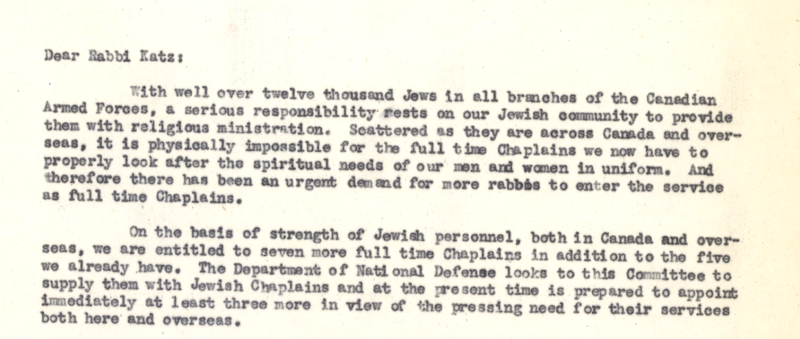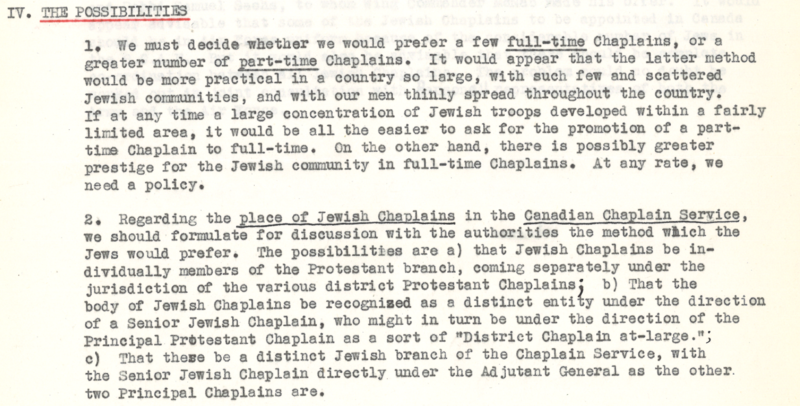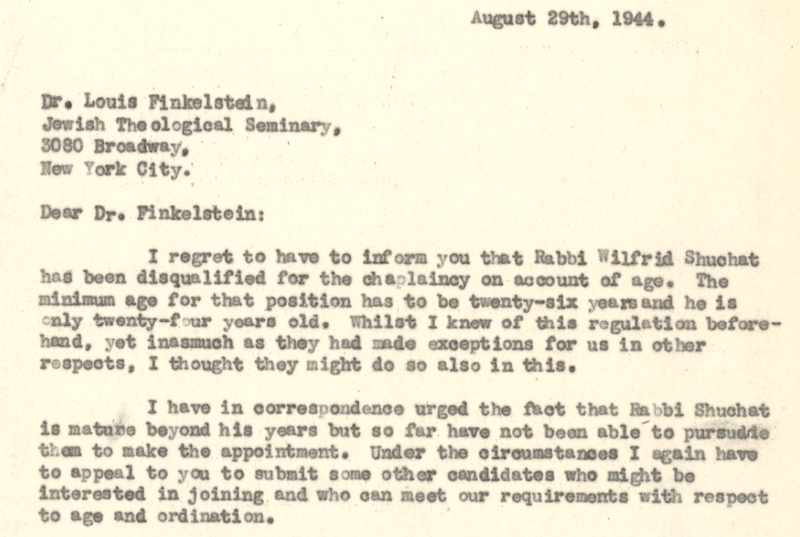RABBI HERMAN ABRAMOWITZ AND JEWISH CHAPLAINCY SERVICES DURING WORLD WAR II
BY HANNAH SROUR
| Author | |
| Date Added |
With Remembrance Day coming up soon on November 11th, over the next few weeks the archives will feature some interesting and relevant highlights from our collections!
Rabbi Herman Abramowitz and Jewish Chaplaincy Services During World War II

Congregation Shaar Hashomayim’s spiritual leader from 1903 to 1947, Rabbi Dr. Herman Abramowitz, served as chaplain to Canadian Jewish soldiers during World War I. Some rediscovered documents in the Congregation’s archives now shed some light on Rabbi Abramowitz’s service on the Canadian Jewish Congress’s Religious Welfare Committee during the Second World War.

As chairman, he oversaw the religious needs of Jewish Canadian soldiers and, above all, selected Jewish chaplains for the Canadian Armed Forces. The Committee faced some distinct challenges. For one, the Committee was at first uncertain where Jewish chaplains would sit in the overall chaplaincy structure of the army. Another issue the Committee addressed at its formation in 1942 was the structure of chaplaincy appointments: where chaplains should be placed, and the expected time commitment of the position. The geographic vastness of Canada and the large number of Canadian soldiers overseas complicated matters. After much deliberation, the proposed solution was to install multiple part-time chaplains across the country (and some full-time chaplains), and appoint Rabbis Samuel Cass (later the director of Hillel at McGill until 1967) and Gershon Levi (the Shaar’s then educational director) as the senior-level full-time Jewish chaplains at home and overseas.

The Committee met on a regular basis to discuss the matter of these appointments, the work of individual chaplains, and any concerns that arose, such as the publication and distribution of religious materials for Jewish soldiers and the accessibility of kosher food.
Rabbi Abramowitz and his colleagues maintained a regular correspondence with the Committee’s sister organization in the United States—the Jewish Welfare Board’s Committee on Religious Activities, chaired by David de Sola Pool—which oversaw the appointment of Jewish chaplains for the American Armed Forces. Rabbi Abramowitz also kept Jewish Theological Seminary chancellor Dr. Louis Finkelstein informed on the activities of the Committee and sought, at times, his recommendations for chaplains. In one particularly notable letter, Dr. Finkelstein and Rabbi Abramowitz discuss the potential appointment of Rabbi Shuchat to a chaplaincy role. Regrettably, 24-year-old Rabbi Shuchat was two years younger than the minimum age (26) to serve as a chaplain.

For a more in-depth look into the activities of Rabbi Abramowitz and the Religious Welfare Committee during World War II, see the excerpts below.
CLICK TO READ THE EXCERPTS
Wednesday, November 5, 2025
14 Cheshvan 5786
OTHER ARTICLES
Telephone
514.937.9471
Fax
514.937.2067
admin@theshaar.org
Privacy Settings | Privacy Policy | Member Terms
©2025 All rights reserved. Find out more about ShulCloud
